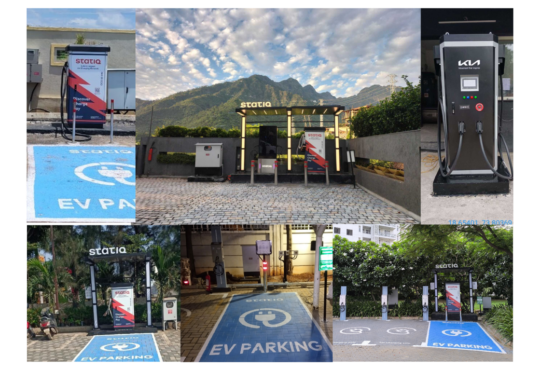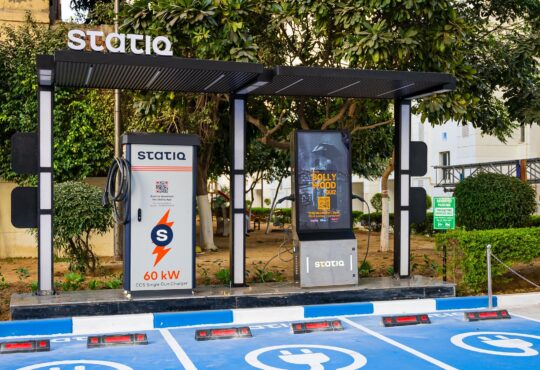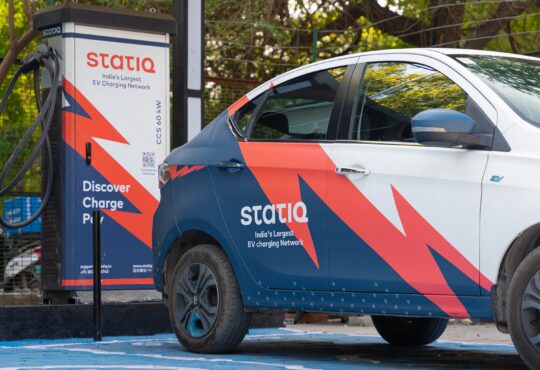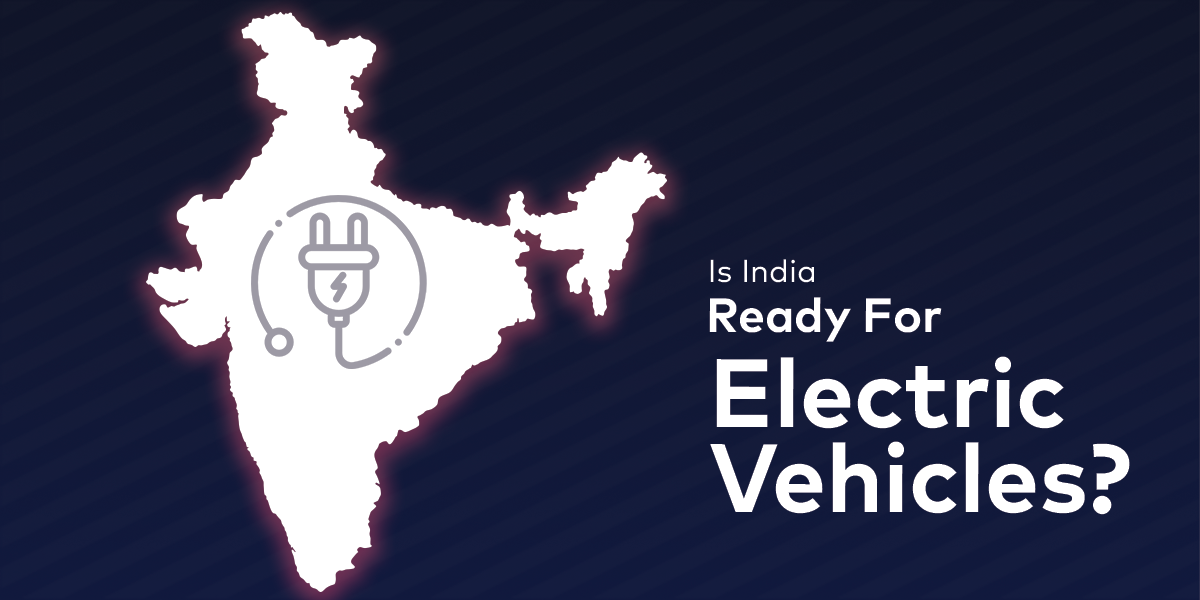
Is India Ready for Electric Vehicles?
The world is moving towards sustainable energy, and electric vehicles (EVs) are playing a critical role in achieving that goal. Electric vehicles run on electricity instead of fossil fuels like petrol and diesel. These vehicles have become increasingly popular worldwide because they are eco-friendly and cost-effective in the long run.
Electric vehicles (EVs) are emerging as the future of transportation, offering a cleaner, more efficient, and more sustainable alternative to traditional gasoline-powered vehicles. As the world shifts towards a greener future, the question of whether India is ready for electric vehicles is increasingly relevant.
In this blog, we’ll explore the current state of electric vehicles in India, key market trends, challenges and opportunities that India needs to address to become a global leader in EV adoption. It will also highlight the benefits of electric vehicles, government policies & laws, and the future prospects of EVs in India. But before diving deep, let’s understand what electric vehicle is and why it is important.
Why Electric Vehicles?
Electric vehicles, also known as EVs, run on electric power instead of gasoline or diesel. It uses a rechargeable battery and an electric motor to power the vehicle, producing zero emissions and contributing to a cleaner and more sustainable environment.
Electric vehicles are important in reducing carbon emissions and the effects of climate change. The transportation sector is a leading contributor to greenhouse gases, with conventional vehicles being one of the biggest contributors. By transitioning to electric vehicles, we can reduce our dependence on fossil fuels and move towards a more sustainable future.
Key Benefits of Electric Vehicles
Electric vehicles offer several benefits over traditional vehicles. Some of these benefits are:
Cost Effective
Electric vehicles are cheaper to run in the long term because they use electricity instead of fossil fuels. This results in lower fuel costs, lower maintenance costs, and lower emissions. Electric vehicles also have a longer lifespan compared to traditional vehicles, which means that they do not require frequent replacements.
Environment Friendly
Electric vehicles are much cleaner than traditional vehicles as they do not emit harmful pollutants like carbon monoxide, nitrogen oxides, and particulate matter. This results in improved air quality and reduced greenhouse gas emissions. Electric vehicles are thus an effective tool in combating climate change and reducing the carbon footprint.
Energy Security
Electric vehicles can help reduce dependence on fossil fuels, which are finite resources. With the increasing cost and limited availability of fossil fuels, electric vehicles provide a sustainable and secure alternative for mobility.
Less Maintenance
Electric vehicles have fewer moving parts compared to traditional vehicles; hence they don’t need oil changes and tune-ups. This means that they require less maintenance and repair work, which saves the maintenance cost of the owners.
Reduction in Noise Pollution
EVs are much quieter than traditional vehicles as they do not have a noisy combustion engine. This results in reduced noise pollution, which is especially important in urban areas.
Scope of Electric Vehicles in India
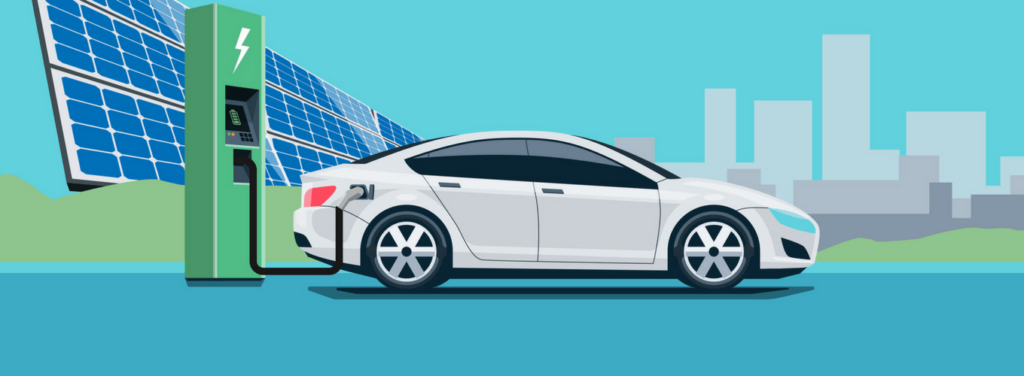
India, like many other countries, is grappling with the challenge of reducing carbon emissions and mitigating the effects of climate change. The transportation sector is a major contributor to air pollution in India and electric vehicles (EVs) have emerged as a promising solution to this problem.
As per the report by Niti Aayog, India can save up to $60 billion in diesel and petrol costs if it achieves its target of having 100% electric vehicles on the road by 2030, the report also estimates that India could reduce its carbon emissions by up to 37% by 2030 if it achieves this target.
As the world’s third-largest consumer of crude oil, India has a lot to gain from electric vehicles. In fact, EVs could account for up to 20% of all new cars sold in India by 2025. This is because battery prices have been falling at a rapid rate over the past few years. And as technologies improve and costs drop further, you’re likely to see EVs become more mainstream than ever before.
Government Support for Electric Vehicles

India has set a target of having 30% of its vehicles on electric power by 2030. The Indian government has been actively promoting the adoption of electric vehicles, with various initiatives and policies aimed at encouraging the use of EVs.
These include tax incentives, subsidies, and investment in charging infrastructure. For example, the government has implemented a subsidy for electric two-wheelers, which has led to a significant increase in their sales.
Additionally, the government has also launched the Faster Adoption and Manufacturing of Hybrid and Electric Vehicles (FAME) program, which provides incentives for the purchase of electric vehicles and supports the development of the charging infrastructure. These initiatives are expected to increase the demand for electric vehicles in India and promote the use of sustainable energy.
Electric Vehicles Market Trends in India
India is one of the fastest-growing markets for electric vehicles in the world. The EV industry has witnessed an increase in sales by 206% in the last year alone. The electric two-wheeler segment is the most popular, with over 6,69,845 electric two-wheelers sold in 2022 out of total 10,54,938 EVs. Electric two-wheelers are particularly popular in India due to their affordability and convenience.

The electric four-wheeler segment is also picking up, with major car manufacturers launching electric vehicles in India, such as the Tata EV models Nexon, Tiago, Tigor, Mahindra e2o, MG ZS EV, Kia EV6, Hyundai Ioniq 5 EV, and many more. As the demand for EVs continues to rise in India, more manufacturers are expected to introduce their electric vehicle models in the Indian market.
Factors Affecting Electric Vehicle Industry in India
While electric vehicles offer several benefits, there are also some challenges that India needs to address to become a leader in the electric vehicle industry. Some of these are:
Electric Vehicle Charging Infrastructure
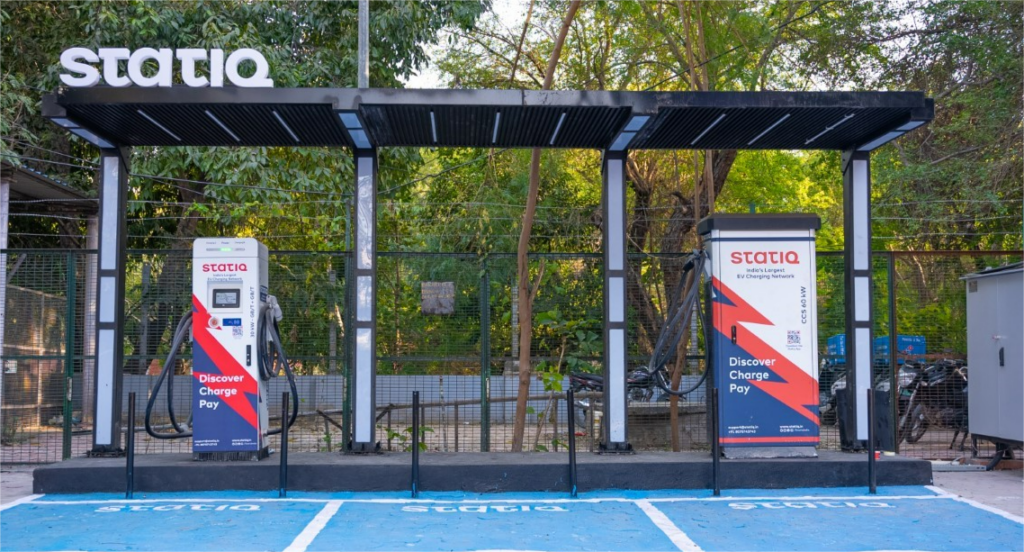
One of the biggest challenges facing the widespread adoption of electric vehicles in India is the lack of charging infrastructure. Currently, there are only a limited number of charging stations available, which can make it difficult for EV owners to find a convenient place to charge their vehicles.
However, the government and private sector are working to increase the number of charging stations and improve their accessibility and reliability. For example, several private companies have launched mobile charging units that can be deployed in areas with limited charging infrastructure.
Statiq, an EV charging station provider is one such organization working towards strengthening EV infrastructure in India with their charging stations and mobile applications that help you find nearby electric vehicle charging stations. In a short span of time, they have been able to install more than 7000 EV charging stations across 60+ cities across India.
Consumer Awareness and Perception

Consumer awareness and perception play a significant role in the adoption of electric vehicles in India. Many consumers are still unfamiliar with the benefits and capabilities of electric vehicles and may be concerned about their range, reliability, and charging time.
To address these concerns, the government and automakers are increasing their efforts to educate consumers about the advantages of electric vehicles and to dispel common myths and misconceptions.
Auto Industry and Manufacturing

The electric vehicle market in India is still in its early stages, but it is growing rapidly. Several major automakers, including Tata Motors, Mahindra, and Hyundai, have already introduced electric vehicle models in India, and many more are expected to follow.
In addition, the government is also promoting local manufacturing of electric vehicles to reduce their cost and increase their accessibility.
Battery Technology and Cost

Battery technology is one of the most important factors affecting the adoption of electric vehicles. Advances in battery technology have led to significant improvements in the performance and range of electric vehicles, as well as a reduction in their cost.
In India, the government is supporting the development of local battery manufacturing, which is expected to further reduce the cost of electric vehicles and increase their competitiveness with gasoline-powered vehicles.
Environmental and Economic Benefits

Electric vehicles offer numerous environmental and economic benefits over traditional gasoline-powered vehicles. They emit far fewer pollutants and greenhouse gases, which helps to reduce air pollution and mitigate the impacts of climate change.
Additionally, electric vehicles have lower operating costs, as they are much cheaper to run than gasoline-powered vehicles.
Challenges and Opportunities
Despite the many advantages of electric vehicles, there are still several challenges that must be overcome to achieve widespread adoption in India. These include the high cost of vehicles, limited charging infrastructure, limited range, limited battery technology and a lack of consumer awareness.
- Lack of Charging Infrastructure: One of the biggest challenges to widespread EV adoption is the lack of charging infrastructure in India. There are not enough public EV charging stations, especially in rural areas, which makes it difficult for EV owners to travel long distances.
- High Cost of EVs: EVs are still relatively expensive compared to traditional petrol or diesel vehicles in India. This high cost is a major barrier to adoption, especially for the average consumer.
- Limited Range: Another challenge with EVs is their limited range. Most Indian consumers are used to driving long distances and are hesitant to switch to EVs because they fear that they will not be able to travel far on a single charge.
- Consumer Awareness: Finally, there is a lack of awareness among Indian consumers about the benefits of EVs, including their environmental impact, lower maintenance costs, and lower fuel costs.
- Limited Battery Technology: The current battery technology used in EVs has a limited range and charging time. Developing more advanced battery technology that offers a better range and shorter charging times is critical to widespread adoption.
Addressing these challenges will require a collaborative effort from the Indian government, automobile manufacturers, and the private sector to create a conducive environment for EV adoption.
To address these challenges and promote the growth of the electric vehicle market in India, the government can bring more EV-friendly policies and incentives to reduce the cost of electric vehicles and increase their accessibility, while automakers can focus on developing electric vehicle models that are affordable and accessible to a wider range of consumers.
Future Prospects of Electric Vehicles in India

The future of electric vehicles in India looks bright, with many positive indicators pointing toward continued growth and widespread adoption. The Indian government is taking significant steps to promote the use of EVs, including investing in charging infrastructure and supporting local manufacturing. Additionally, major automakers are introducing new electric vehicle models in India, and the market for EVs is expected to continue to expand in the coming years.
As battery technology continues to improve, the range and performance of electric vehicles will become even more competitive with gasoline-powered vehicles. Furthermore, the growing awareness and concern about air pollution and climate change are expected to drive further demand for electric vehicles in India.
Conclusion
In conclusion, the prospects for the future of electric vehicles in India are positive, and the country has the potential to play a significant role in the global transition to a cleaner and more sustainable transportation system. The recent discovery of Lithium Ore in Kashmir is a positive sign for the EV industry. When India starts manufacturing EV batteries, it will drastically reduce the manufacturing cost resulting in cheaper electric vehicles for consumers.
Electric vehicles have the potential to drive economic growth, reduce carbon emissions, and promote sustainability in India. While several challenges need to be addressed, the benefits of electric vehicles are significant. By promoting the adoption of electric vehicles and supporting the development of charging infrastructure, India can become a leader in the EV industry and contribute towards green mobility.
Also read, Prospects of EV Adoption in India
